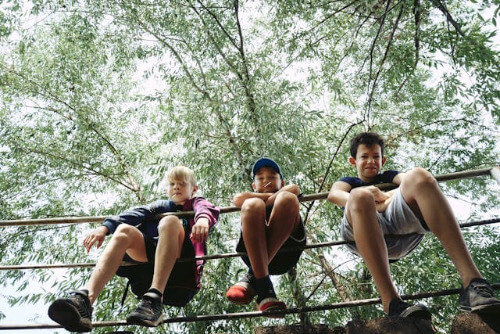Why Do Children Lie? A Parent’s Guide to Understanding, Responding, and Raising Honest Kids
Have you ever caught your child fibbing about brushing their teeth, sneaking cookies, or “forgetting” their homework? Lying in children is a common concern parents share — and it can be both frustrating and worrying.

The good news? Lying doesn’t mean your child is destined to grow up dishonest. In fact, lying is often a normal part of development. Still, it’s not something parents want to ignore, and knowing why kids lie (and how to respond) can make all the difference.
Let’s dig into the psychology of lying, age-by-age reasons, practical parenting strategies, and when lying may signal something deeper.
Why Do Children Lie? (The Big Picture)
Children lie for many of the same reasons adults do — to avoid trouble, to protect themselves, or to get something they want. But unlike adults, kids are also still figuring out the difference between reality and imagination, right and wrong, honesty and deception.
Here are some of the most common reasons kids lie:
- Avoiding punishment (“I didn’t hit my brother!”)
- Seeking approval or praise (“I got all the answers right!”)
- Testing boundaries (“No, I didn’t touch the vase… oops!”)
- Protecting feelings (“I love this sweater, Grandma!”)
- Imitating adults (kids notice if we bend the truth)
- Coping with stress or fear (lying to avoid embarrassment or shame)
The key takeaway: lying isn’t always malicious. More often, it’s a coping tool or a sign of developmental growth.
Why Do Children Lie at Different Ages
Understanding the psychology of lying at each stage can help you respond with empathy instead of anger.
Toddlers (Ages 2–3)
- At this age, kids aren’t really lying on purpose. Their “lies” are more like imagination leaks (“I didn’t eat the cookie” while chocolate is smeared on their face).
- Toddlers don’t fully understand honesty yet — they’re just experimenting with words and cause-effect.
Parent tip: Don’t treat these as serious lies. Instead, gently correct them and praise honesty when it happens.
Preschoolers (Ages 4–6)
- Preschoolers start to lie intentionally — often to avoid punishment or gain approval.
- They’re also testing boundaries: “Will Mom believe me if I say I brushed my teeth?”
- At this age, lying is linked to the development of “theory of mind” — the ability to understand that other people have different thoughts and perspectives.
Parent tip: Focus less on punishment and more on teaching. Reinforce honesty with praise: “I’m glad you told me the truth, even if it was hard.”
School-Age Kids (Ages 7–12)
- Lies become more sophisticated — about homework, chores, friendships, or sneaky behaviors.
- Kids this age may lie to fit in with peers or protect themselves from embarrassment.
- They know lying is wrong but still may test the consequences.
Parent tip: Keep communication open. If lying is constant, look for underlying issues (anxiety, pressure, or fear of punishment).

Teens (Ages 13+)
- Teen lies often revolve around freedom, independence, and privacy (“I’m staying at Sarah’s” when really they’re at a party).
- Some lies are about avoiding conflict, while others are about pushing limits.
- Peer influence is huge at this age.
Parent tip: Balance trust with clear boundaries. Avoid harsh punishments that drive more secrecy. Instead, discuss values, responsibility, and the importance of trust.
When Lying Is a Red Flag
Occasional lying is normal. But chronic or extreme lying can sometimes point to deeper issues:
- Anxiety or fear-based lying
- Low self-esteem (lying to feel better about themselves)
- Attention-seeking
- Behavioral or conduct disorders
If your child lies about everything or the lies feel manipulative and harmful, it may be worth consulting a child psychologist or counselor.
How to Respond When Your Child Lies
Here’s where the rubber meets the road: what to do in the moment.
1. Stay calm → Reacting with anger or shame often makes lying worse.
2. Look for the “why” → What are they trying to avoid or gain?
3. Teach, don’t punish → Punishment can push kids into more lying. Instead, explain the value of honesty.
4. Praise honesty → When your child admits the truth, recognize it: “That was brave of you to tell me.”
5. Model honesty → Kids notice if we lie about small things. If you expect truthfulness, practice it yourself.
6. Use natural consequences → For example, if they lie about homework, they still face the consequences at school.
Scripts You Can Use With Your Child
Sometimes parents just need the right words in the moment. Try these:
- “I know it can be hard to tell the truth, but I’ll always listen calmly.”
- “I get it — you didn’t want to get in trouble. But honesty helps me trust you.”
- “Thank you for telling me the truth. That shows courage.”
- “Lying might fix a problem now, but honesty helps us in the long run.”
FAQs Parents Ask (and Honest Answers)
“Is lying a sign of intelligence?”
Surprisingly, yes — early lying is linked to brain development and problem-solving. It doesn’t mean your child is dishonest, just clever!
“At what age do kids understand lying is wrong?”
By around age 6–7, most children know lying is wrong, though they may still do it to avoid trouble.
“Should I punish lying?”
Punishment often backfires. Focus on natural consequences and teaching instead.
“My child lies about everything — what now?”
If lying feels constant and disruptive, it may signal stress, anxiety, or a deeper issue. Consider professional guidance.

Resources & Next Steps
If you want to dive deeper, here are some helpful resources:
- Books: NurtureShock by Po Bronson, The Whole-Brain Child by Daniel J. Siegel
- Professional help: A child psychologist or counselor if lying is chronic
- Parenting tools: Honesty checklists, family “truth-telling agreements,” role-play games
Final Thoughts on Why Do Children Lie?
Lying is just another part of growing up. You can teach your child that honesty really is the best policy, be patient, empathetic and offer consistent guidance. As they grow, you will build stronger communication and trust that last way beyond childhood.
Remember this: Your child’s lies don’t define them. But your calm, compassionate response can shape them into an honest, confident adult.
Download the 10 Practical Responses When Your Child Lies to you booklet.




















New! Comments
Have your say about what you just read! Leave me a comment in the box below.